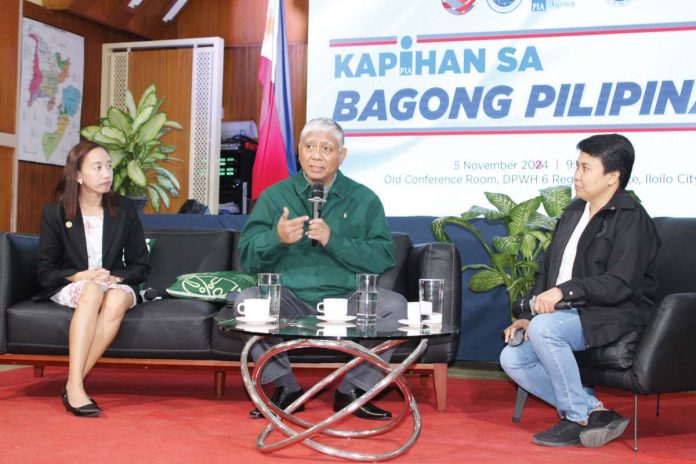
ILOILO City – As the campaign period for senators and party-list begins, Commission on Elections (Comelec) Region 6 director Atty. Dennis Ausan is urging candidates, along with their campaign leaders and supporters, to strictly adhere to the rules and regulations concerning the placement of campaign materials.
Ausan specifically highlighted the proper size of campaign materials, such as posters, which must be displayed in designated common poster areas or on private properties with the owner’s consent.
Posters should not exceed two feet by three feet in size when posted in these areas.
“The maximum size for posters in designated common poster areas is strictly two feet by three feet. Any poster larger than this will be confiscated by the Comelec and reported to the Law Department for appropriate disposition,” said Ausan.
Campaign materials placed outside of designated areas, such as on public property like posts, trees, waiting sheds, and other public structures, must be removed 72 hours before the official start of the campaign period.
As for posters on private properties, Ausan clarified that the Comelec cannot regulate them as long as the property owner gives consent, based on a ruling from the Supreme Court.
Comelec’s monitoring team will begin inspecting compliance with these rules starting today, February 11.
Additionally, Ausan stressed the requirement for all campaign posters to include the phrase “Paid by” or “Donated by” to indicate who financed the materials.
With the national campaign period officially starting today, candidates are now subject to the full range of Comelec rules and regulations.
Violating the Fair Election Act and its regulations may result in election offenses, punishable under Section 264 of the Omnibus Election Code (OEC).
Offenders could face imprisonment of one to six years, disqualification from holding public office, and the loss of voting rights.
For local candidates, Ausan noted that they will remain classified as “aspirants” until the campaign for local positions officially begins on March 28. They will become official candidates at that time.
Last week, the Comelec Central Office issued reminders to ensure responsible campaigning, detailing regulations under Comelec Resolution No. 11086. These include rules on campaign periods, materials, and advertising, with specific prohibitions on campaigning during certain religious and election-related holidays.
The official campaign periods are from February 11 to May 10 for national positions and from March 28 to May 10 for local positions.
No campaigning is allowed on April 17 (Maundy Thursday), April 18 (Good Friday), May 11 (Eve of Election Day), and May 12 (Election Day).
Campaign materials must also adhere to size restrictions, with posters limited to two feet by three feet and streamers not exceeding three feet by eight feet.
Print ads are restricted to one-fourth of a broadsheet page or one-half of a tabloid page, while television and radio ads are also subject to time limitations.
Candidates are encouraged to use recyclable materials and comply with local laws on plastics and hazardous materials.
Spending limits for candidates are set at P3 per registered voter for those affiliated with a political party and P5 per registered voter for independent candidates.
Authorized Poster Areas
Campaign materials can only be posted in designated common poster areas.
The number of poster areas allowed per barangay depends on the number of registered voters: one area for barangays with 5,000 voters or fewer, and an additional area for every additional 5,000 voters.
Election officers are tasked with posting the list of common poster areas in visible locations.
Group campaign materials in common poster areas must also adhere to specified dimensions:
* for political parties and party-list groups – 12 feet by 16 feet or equivalent and must not exceed 192 square feet in total
* for independent candidates – 4 feet by 6 feet and must not exceed 24 square feet in total
Prohibition of Vote Buying and Selling
The Comelec warns against vote buying and selling, which includes offering or promising money, goods, or public or private jobs in exchange for votes. This also extends to efforts to encourage voters to abstain from voting or to vote for or against a particular candidate.
Comelec also reminds candidates and parties to remove their campaign materials right after the election.
All candidates (winners and non-winners) required, too, to submit to the Comelec their Statement of Contributions and Expenditures (SOCE) on or before June 11, 2025./PN



